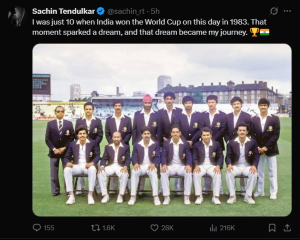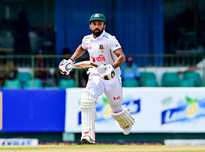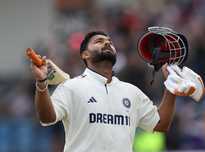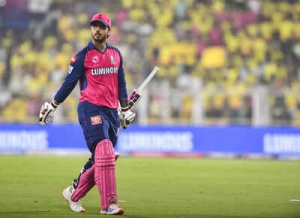The Asia Cup tournament is showing signs of progress, potentially resolving previous uncertainties. While premature to declare definitive conclusions, a growing sense of optimism surrounds the continental championship. This marks a shift from prior ambiguity fueled by tensions between India and Pakistan.

Although details remain to be finalized, a formal decision may emerge next week. The Asian Cricket Council (ACC) aims to release the schedule for the six-team tournament during the first week of July, coinciding with their expected convention.
If everything proceeds smoothly, the ACC is reportedly aiming for a start in the second week of September, potentially on September 10. The T20 format tournament will include:
Promotional activities have already commenced.
The UAE remains a leading contender to host the tournament, but discussions are also underway for a hybrid format. Although India is the designated host, the ACC previously decided that when India or Pakistan are scheduled to host the Asia Cup, the tournament would be held at a neutral venue.
Uncertainty clouded the tournament after the terror attack in Pahalgam in April. Tensions further escalated following India's Operation Sindoor against Pakistan in May, raising doubts about the tournament's viability. Calls for India to boycott Pakistan in multilateral events also grew. India already does not participate in bilateral cricket with Pakistan. Discussions about a potential boycott in global events were expected at the upcoming ICC meeting.
However, recent events suggest a shift in direction. The International Cricket Council (ICC) released schedules for two global events:
India and Pakistan are scheduled to compete against each other in both tournaments, on October 5 in Colombo and June 14 at Edgbaston, respectively.
While officials from the BCCI, ACC, and ICC have refrained from public comments, cricketing ties between the rivals appear set to continue, at least in global events. These matches are significant revenue generators for global cricket, benefiting governing bodies like the ICC, the ACC, and their member boards, even if India and the BCCI are not as reliant on this revenue.
Newer articles
Older articles
 Prithvi Shaw Admits to Misguided Choices and Lost Focus Amid Career Setbacks
Prithvi Shaw Admits to Misguided Choices and Lost Focus Amid Career Setbacks
 Indian Pacer Harshit Rana Released from Squad Ahead of Second England Test Amid Series Setback
Indian Pacer Harshit Rana Released from Squad Ahead of Second England Test Amid Series Setback
 Sachin Tendulkar: 1983 World Cup Victory Fueled My Cricket Dream at Age 10
Sachin Tendulkar: 1983 World Cup Victory Fueled My Cricket Dream at Age 10
 Headline:
Bangladesh's Shadman Islam Stands by Teammates After Batting Woes on Day 1 vs. Sri Lanka
Headline:
Bangladesh's Shadman Islam Stands by Teammates After Batting Woes on Day 1 vs. Sri Lanka
 Rishabh Pant's Fearless Batting Style Hailed by Greg Chappell, Compares Him to Gilchrist After Twin Centuries vs. England
Rishabh Pant's Fearless Batting Style Hailed by Greg Chappell, Compares Him to Gilchrist After Twin Centuries vs. England
 India vs. England: Ex-Selector Slams Fielding Blunders After First Test Defeat; Costly Drops Haunt Team India
India vs. England: Ex-Selector Slams Fielding Blunders After First Test Defeat; Costly Drops Haunt Team India
 Gavaskar Calls for Kuldeep Yadav's Inclusion in Second Test Amid Bumrah Fitness Concerns, Cites Edgbaston Conditions
Gavaskar Calls for Kuldeep Yadav's Inclusion in Second Test Amid Bumrah Fitness Concerns, Cites Edgbaston Conditions
 Pant Climbs to Career-Best Ranking, Bumrah Retains Top Spot in Latest ICC Test Update
Pant Climbs to Career-Best Ranking, Bumrah Retains Top Spot in Latest ICC Test Update
 Greg Chappell: Rishabh Pant's Unorthodox Style is Revolutionizing Cricket
OR
Rishabh Pant is Redefining Cricket: Greg Chappell Hails Wicketkeeper's Impact
Greg Chappell: Rishabh Pant's Unorthodox Style is Revolutionizing Cricket
OR
Rishabh Pant is Redefining Cricket: Greg Chappell Hails Wicketkeeper's Impact
 Nitish Rana Eyes Delhi Comeback After Disappointing Uttar Pradesh Stint
Nitish Rana Eyes Delhi Comeback After Disappointing Uttar Pradesh Stint